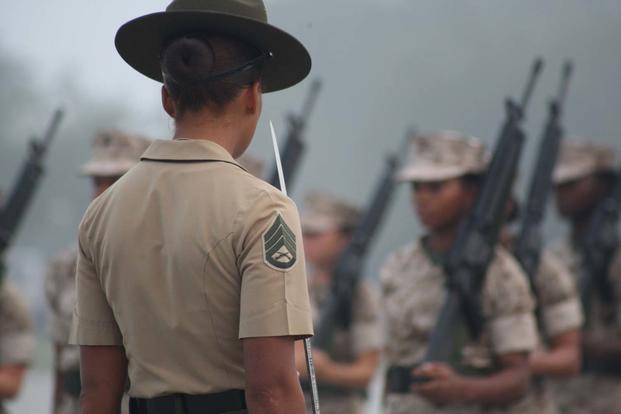In addition to legal aid and support services, the Marine Corps may offer internet reputation management tools to victims of a Facebook group that shared nude and compromising photos of female service members and veterans without their consent, a defense official told Military.com Friday.
In the days since independent site The War Horse broke the news that Marines United, a private group with 30,000 members, had engaged in this illicit and non-consensual sharing of photos and other personal information, both Marine Corps Commandant Gen. Robert Neller and Sergeant Major of the Marine Corps Ronald Green have issued statements sternly condemning the behavior. While a Naval Criminal Investigative Service investigation continues into the active-duty troops who participated in the photo-sharing ring, behind the scenes Marine Corps leaders have been scrambling to articulate a way forward for the service.
In a "white letter" expected to be sent to commanders soon, the commandant of the Marine Corps, Gen. Neller will announce the formation of a task force, manned by officials from key agencies across Headquarters Marine Corps and led by Assistant Commandant Gen. Glenn Walters. The task force will be focused on steps to be taken in light of the incident, including immediate actions to care for victims of the photo-sharing ring. One of the options being considered, the official said, would provide women with so-called reputation management software, designed to protect a user's online presence from compromising information and bury damaging search engine results.
These tools, which use techniques ranging from flooding the internet with positive information related to an individual to advanced search engine optimization and engineering, are used by private individuals looking to manage their online identity as well as major corporations In 2014, retired Army Lt. Gen. Patrick O'Reilly reportedly used a reputation management firm called OptimizeUp to obscure news about a negative Inspector General's report that concluded he bullied and harassed his senior staff.
In testimony before a panel of the House Appropriations Committee Wednesday, Green said self-identified victims of photo-sharing would have access to all the resources offered by the Marine Corps to sexual assault survivors, including a military attorney under the victims legal counsel program.
Asked whether he was concerned about the possibility the photos could be used to blackmail female service members, he said, "We absolutely are."
Additional guidance, to be published in the near future, will list all the resources the Marine Corps is offering to self-identified victims of Marines United, as well as how to report illicit social media behavior to the military, the official said.
A Marine Corps spokesman, Maj. Clark Carpenter, called dealing with this scandal the current top priority for Headquarters Marine Corps.
"We are taking many immediate actions at this moment and this remains our number one issue," he said. "As we address immediate items, we will learn more that will help us to address the situation for the long term."
While news broke this week that the individuals behind Marines United were beginning to create new Facebook groups and share the same compromising photos across new online platforms that may prove harder to monitor and track, Carpenter indicated the Marine Corps was undeterred in its intent to deal comprehensively with this behavior among its members.
"We fully expect that the discovery of Marines United will motivate Marines to come forward to notify their chain of command of pages like it," he said in a statement. "Things may seem to get worse before they get better; Marines will attack this problem head-on and continue to get better."
-- Hope Hodge Seck can be reached at hope.seck@military.com. Follow her on Twitter at @HopeSeck.






























